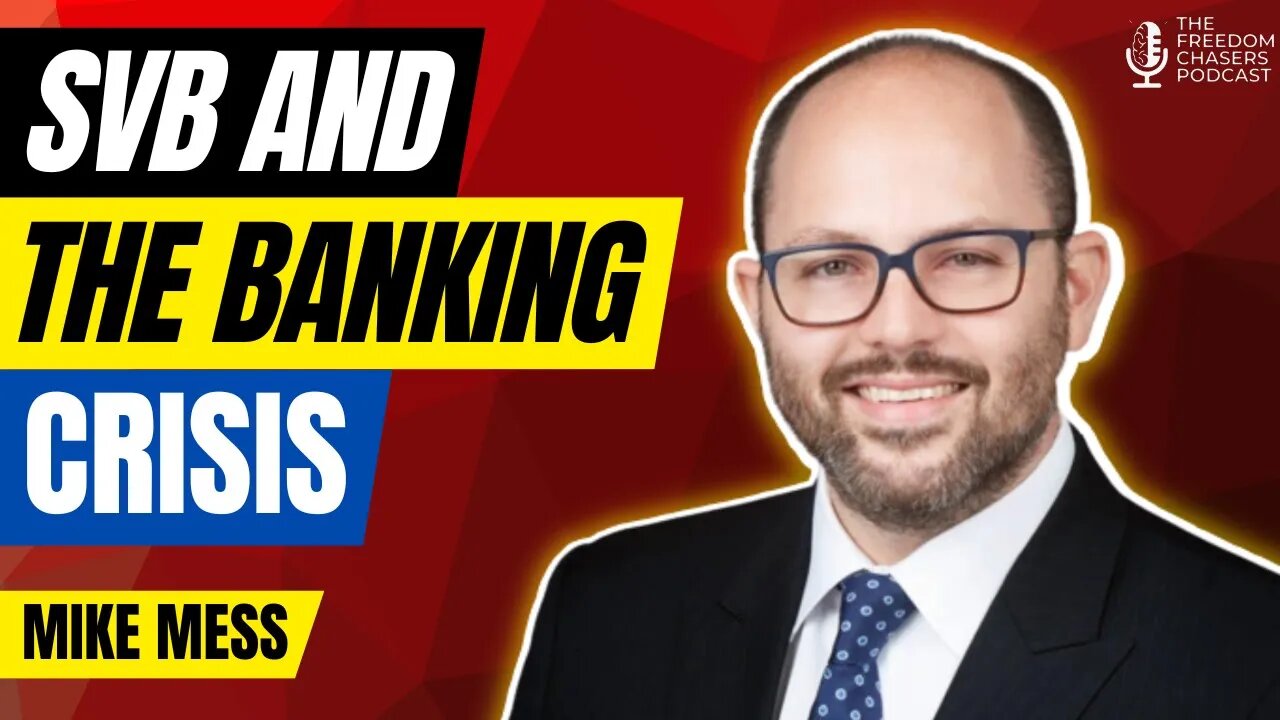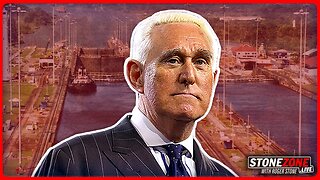Premium Only Content

The Collapse of Seb Bank: Lessons Learned
In a recent episode of the podcast, we interviewed Mike Mess, a former Goldman Sachs employee who launched his own private wealth management company. Mike's company manages the wealth of private families, including corporate executives, startup founders, and real estate professionals. During the episode, Mike discussed various topics related to banking, wealth management, and investment opportunities.
He began by discussing the recent news of Silicon Valley Bank's mismanagement and failure. Mike explained that not all banks are equal and have different balance sheets, makeups, and business models. He emphasized the importance of choosing the right bank based on one's financial goals and needs. Mike also talked about his work in helping clients navigate intergenerational wealth transfer and succession planning.
The conversation then shifted to the recent collapse of the bank, Seb, and what led to it. Mike reflected on the questions that should be asked to navigate such a process, including the role of oversight in the bank and where the Fed was in this situation. He also suggested that organizations, specifically CFOs and Treasuries, need to bolster their policies around cash management and banking relationships. He then discussed how the Seb bank put money into bonds and marked them as Hold to Maturity (HTM), which meant they did not have to disclose their losses on their balance sheet. This, combined with the movement of rates, resulted in the bank being crushed. Mike suggested that regulators will likely change the regulations around marking bonds HTM and/or disclose further. He also explained the Texas ratio, a measurement of non-performing loans, and how it is used to assess a bank's health.
In terms of investment opportunities, Mike mentioned that there is currently a massive supply imbalance and that fixed income, particularly high-quality treasuries and municipal bonds, is now attractive. Private credit is also an interesting space, with attractive yields. Some pockets of the equity market, particularly small caps, are also attractive. He emphasized the importance of evaluating the team running a small business when considering investing in it, as well as their ability to execute.
Mike highlighted the difference between private wealth management and a family office, which manages the wealth of one or a few families together. Family offices could handle finance, investing, taxes, and bring other people into the investment strategy or fund. Private wealth management firms are regulated by the SEC and must follow strict regulations. He admitted that being regulated by the SEC is a lot of weight and responsibility, but their strong culture and implementation of systems with checks and balances ensure that they are transparent and honest with their clients.
In conclusion, the episode provided valuable insights into banking, wealth management, and investment opportunities. Mike's expertise and experience in the industry made for an informative and engaging conversation. Today’s episode emphasized the importance of choosing the right bank and evaluating investment opportunities carefully, as well as the importance of succession planning and intergenerational wealth transfer.
Schedule a FREE coaching call: coaching.freedomchaserspodcast.com
Don't forget to reach out to Mike Mess:
Website:https://www.veracitycapital.com/staff/michael-j-mess/
Linkedin: https://www.linkedin.com/in/michaelmess/
👍 Keep up with The Freedom Chasers:
Subscribe to our YouTube: https://www.youtube.com/channel/UC4_Wkdt-M2rKLmfucReIneg?sub_confirmation=1
Follow us on Instagram: https://www.instagram.com/podcast_tfc/
Follow us on Twitter: @tfcp_podcast
https://www.facebook.com/groups/freedomchaserspodcast
-
 2:05:07
2:05:07
Darkhorse Podcast
10 hours agoWhy Trump Wants Greenland: The 257th Evolutionary Lens with Bret Weinstein and Heather Heying
124K291 -
 LIVE
LIVE
Right Side Broadcasting Network
10 hours ago🎅 LIVE: Tracking Santa on Christmas Eve 2024 NORAD Santa Tracker 🎅
2,729 watching -
 2:48
2:48
Steven Crowder
12 hours agoCROWDER CLASSICS: What’s This? | Nightmare Before Kwanzaa (Nightmare Before Christmas Parody)
195K12 -
 1:01:17
1:01:17
The StoneZONE with Roger Stone
3 hours agoChristmas Edition: Why the Panama Canal is Part of the America First Agenda | The StoneZONE
9.29K12 -
 LIVE
LIVE
LFA TV
14 hours agoLFA TV CHRISTMAS EVE REPLAY
557 watching -
 LIVE
LIVE
tacetmort3m
21 hours ago🔴 LIVE - THE ZONE KEEPS PULLING ME BACK - STALKER 2 - PART 15
552 watching -
 22:45
22:45
Brewzle
10 hours agoI Went Drinking In A Real Bourbon Castle
7.37K1 -
 48:36
48:36
PMG
1 day ago $0.19 earned"Parkland Parent Speaks Out On Kamala Harris Using Victims"
5.12K2 -
 4:06
4:06
The Lou Holtz Show
9 hours agoCoach Lou Holtz’s Heartfelt Christmas Message 🎄 | Family, Faith & Notre Dame Spirit 💚 #christmas
3.69K -
![ROSEANNE BARR - Her Journey, TRUMP, and the MAGA GOLDEN AGE! [INTERVIEW]](https://1a-1791.com/video/s8/1/M/m/B/2/MmB2v.0kob.1-small-ROSEANNE-BARR-Her-Journey-T.jpg) 51:35
51:35
Dr Steve Turley
1 day ago $6.15 earnedROSEANNE BARR - Her Journey, TRUMP, and the MAGA GOLDEN AGE! [INTERVIEW]
39.7K49